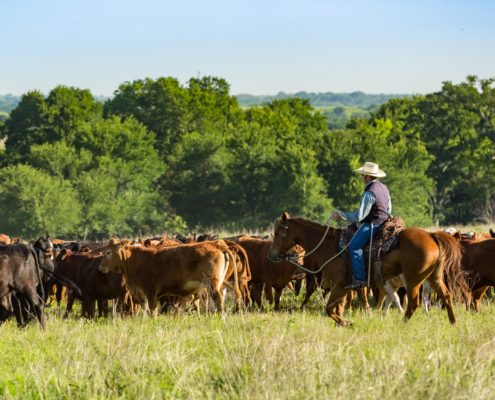 https://m1cuso.com/wp-content/uploads/2025/03/Main-Power-Plant-Energy-ideas-And-energy-saving.jpg
1250
2000
AbstraktMarketing
/wp-content/uploads/2022/09/logo-madione-1.png
AbstraktMarketing2025-03-27 11:28:322025-03-27 11:28:362025 Energy Sector Trends We’re Anticipating
https://m1cuso.com/wp-content/uploads/2025/03/Main-Power-Plant-Energy-ideas-And-energy-saving.jpg
1250
2000
AbstraktMarketing
/wp-content/uploads/2022/09/logo-madione-1.png
AbstraktMarketing2025-03-27 11:28:322025-03-27 11:28:362025 Energy Sector Trends We’re AnticipatingHow to Ensure You Meet USDA Loan Qualifications
While USDA business loans are designed to grant equal-opportunity funding for businesses nationwide, they’re typically harder to obtain than most other business loans. The specific eligibility requirements can be overwhelming for any rural business owner, and the application process is an exceptionally lengthy ordeal compared to what the average person may expect.
To ensure you’re not caught off guard, keep reading for a breakdown on determining eligibility for a USDA loan as you navigate the application process. When you’re in a tough situation, learn how a credit union service organization (CUSO) can help secure the funding you deserve.
Determining Your USDA Loan Eligibility
Qualifying for a USDA-backed business loan depends on the desired loan type, but at the very minimum, these guidelines mandate the following:
- The business must be located in a “rural area,” which is any city or town in the U.S. with a population of less than 50,000 residents.
- Anyone holding majority ownership in the business must be a U.S. citizen or permanent resident.
- The business can prove its creditworthiness and has a score of at least 650.
- There is proven and strong business revenue showing the lendee’s ability to repay the loan.
- The borrower must provide collateral equal to the loan amount, such as equipment, real estate, and machinery.
- Anyone who owns 20% or more of the business’s assets must provide a statement of personal guarantee to repay the mortgage within 12 months with no late payments or collections.
Eligibility by Loan Type
Along with the base requirements, some of the eligibility requirements differ depending on the designated USDA loan program, like:
- USDA Business and Industry Loans – To qualify for one of these loans, the borrower must be a for-profit, nonprofit, federally recognized Tribe, public body, or individual in the United States. Additionally, similar to the standard eligibility requirements, they must plan to use these loan funds in a rural zone.
- USDA REAP Loans – An incredibly flexible loan option, any agricultural producer can apply for one of these loans, regardless of location.
- USDA 9003 Loans – Almost any individual or entity involved with new or blossoming technologies can apply for this program. This includes corporations, farms, educational institutions, Native American Tribes, and more. Involved parties must make a significant equity contribution. Plus, the USDA only guarantees up to 80% of qualifying project costs.
Are you wondering how to qualify for a USDA loan? Email your business address to Madison One for eligibility confirmation.
"*" indicates required fields
How to Apply for a USDA Loan
The USDA business loan application process can be summarized in a few steps:
- Determining Eligibility – Before starting the application process, follow the above list and ensure that your business meets the eligibility requirements for USDA loans.
- Identifying the Best Type of Loan – The USDA offers various loan programs for different purposes, such as the Business & Industry (B&I) Loan Program, Rural Energy for America Program (REAP), Food Supply Chain Guaranteed Loan Program, and more. Identify the specific loan program that aligns with your business needs.
- Gathering Required Documents – Prepare the necessary documents and information required for the loan application. These papers may include business plans, financial statements (balance sheet, income statement, and cash flow statement), tax returns, credit history, collateral information, and any other supporting documents requested by the USDA.
- Consulting With USDA Representatives – Reach out to your local USDA office or a USDA-approved lender to discuss your loan needs and get guidance on the application process. They can provide valuable information, answer your questions, and assist you in completing the application correctly.
- Completing and Submitting the Loan Application – Fill out the loan application form accurately and thoroughly. Be prepared to provide detailed information about your business, its ownership structure, financial history, projected revenues, employment details, and other relevant information about the loan program you are applying for.
Once completed, submit it to the USDA through the appropriate channel. This may involve submitting the application online, mailing it to a designated address, or delivering it in person to the USDA office. - Awaiting Application Review –The USDA will review your loan application, examining crucial factors such as your business’s creditworthiness, compliance, and repayment ability. The review process may take several weeks or longer, depending on the complexity of the loan request.
- Navigating Loan Approval and Closing – If your application is approved, you will receive a loan offer outlining the terms and conditions. Review the offer carefully and consult your legal and financial advisors before accepting. Once accepted, the loan closing process will commence, involving the signing of loan documents and finalizing the loan terms.
Remember, the process and requirements may vary slightly depending on the specific USDA loan program. It is advisable to consult with USDA representatives or approved lenders throughout the application process to ensure compliance with all regulations and to maximize the chances of a successful loan application.
How CUSOs Can Aid the Application Process
CUSOs, or credit union service organizations, are for-profit entities wholly or partially owned by federally chartered or federally insured credit unions. They primarily offer technical, financial, and operational services to credit unions and their members to help them pool resources and reduce service costs.
Regarding loans, CUSOs can offer lots of unique benefits. A CUSO-sourced loan program can provide nationwide loan opportunities that help credit unions further diversify their portfolios in multiple geographic markets—ultimately helping them expand their lending goals and incentives. Additionally, CUSOs offer greater expertise, innovation, and savings. For the average business owner, this grants the opportunity for increased lending availability and, ideally, more streamlined processing times.
Madison One CUSO Is Equipped to Help Businesses Capitalize on Government Funding Opportunities
Do you have a vision for your rural business that’s been limited by your funds? If so, consider partnering with an experienced business loan provider that can guide your organization through the application process and beyond. Madison One CUSO is a credit union-owned company specializing in USDA and SBA commercial loans for small and rural businesses nationwide. We cater to each industry, including, but not limited to:
Secure the financing you need and schedule a meeting with an expert today.





